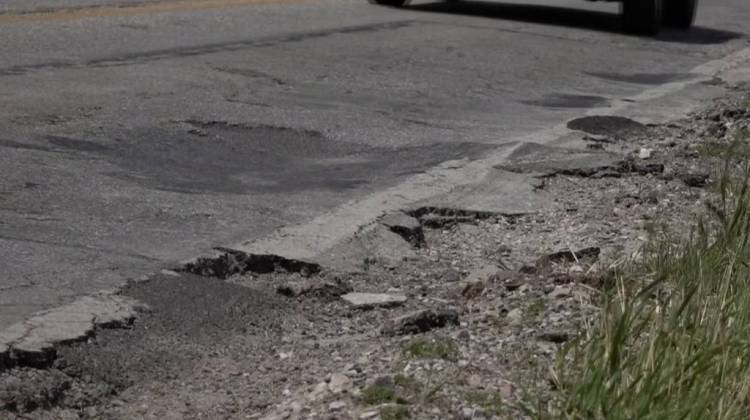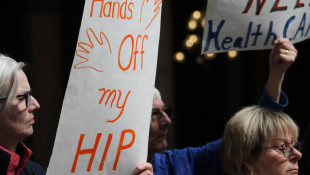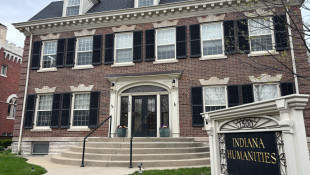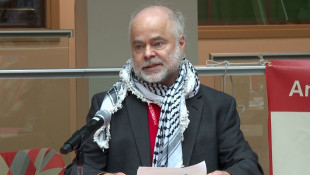
The Owen County Prosecutor is considering the death penalty for the man accused of raping and killing Shaylyn Ammerman. — Photo: Barbara Brosher
When a prosecutor in Indiana decides to pursue the death penalty, taxpayers often end up paying the bill.
That could happen in Owen County, where the prosecutor is considering capital punishment for the man accused of raping and killing 1-year-old Shaylyn Ammerman.
It puts counties in a difficult position where they have to consider emotions and budgets.

A garden dedicated to Shaylyn Ammerman sits in her grandmother's front yard. — Photo: Barbara Brosher
Counties Struggle To Cover Costs Of Pursuing Capital Punishment
The small garden in the corner of Tamera Morgan’s yard is filled with statues of angels – a reminder of the little angel she lost last month.
“Shaylyn was probably the most perfect little 1-year-old you could have,” says Morgan, Shaylyn’s grandmother.
Shaylyn went missing from her grandmother’s house in March. Police later found her body in a rural area of Gosport.
They arrested family friend Kyle Parker, who police say took Shaylyn out of her crib before raping and murdering her. Parker pleaded not guilty to the charges and could go on trial this summer.
“He just took everything away from me,” Morgan says.
The case meets state requirements to qualify for the death penalty, but the Owen County prosecutor hasn’t decided if he’s going that route.
“At this point we’re not going to make an emotional determination regarding the death penalty or life without parole request,” Owen County Prosecutor Don VanDerMoere said in March.
It’s a difficult decision to face – one many counties have grappled with.
Chad Cottrell was convicted of killing his wife and two stepdaughters at their Rockville home.
The graphic crime shocked the small town.
“I think the emotions were really high and mainly because we’re dealing with children here,” says Jim Meece, president of the Parke County commissioners. “Here’s someone that apparently just decided one day he was going to kill these children and that’s what occurred. So all the sudden all the people who thought they were safe in Parke County and comfortable all the sudden were not safe and comfortable anymore.”
The prosecutor requested the death penalty in that case.
According to a Legislative Services Agency report from 2014, death penalty cases cost, on average, ten times more than life without parole cases.
The state will reimburse counties for up to half of the costs – but counties must come up with the rest of the money.
“There was really no way that Parke County could fund that out of our general fund,” Meece says. “Our entire budget is between 10 and 12 million and we knew that this case was going to cost well over a million dollars.”
The Parke County commissioners got legislative approval to enact an income tax increase to pay for the case. The tax was in place until the case concluded, which took several years.
It cost more than $1.5 million – and the judge ended up sentencing Cottrell to life without parole.
“After he took the plea, we still had to pay the hotel about $10,000 just to cover the reservations we’d made,” Meece says.
Lake County had to dip into its reserves in 2012 to pay for a capital punishment case. And Grant County transferred money from its road and bridges fund to help cover costs of a death penalty case.
High Costs Lead To Decline In Death Penalty Requests
The high price of death penalty cases is partially the result of rules the Supreme Court adopted regarding defense lawyers who work on the trials.
“There had to be two lawyers appointed for a defendant,” says Paula Sites, assistant executive director of the Indiana Public Defenders Council. “They had to have a certain level of experience and certain specialized education and they also had to have their caseloads limited in terms of how many other cases they were trying to handle. And they were paid at an hourly rate.”
Sites works with defense lawyers who take on those cases. She says the high costs are one reason the state’s seen a significant drop in death penalty case.

On average, there have been fewer than two death penalty cases filed per year over the past five years.
“People are looking much more carefully at how you spend our public dollars, our taxpayer dollars,” she says. “So, you wouldn’t pay for a program that was going to be only 20 percent effective, only one in five cases resulting in what you’re actually trying for.”
There’s also another option available for high-level crimes that’s cheaper. In 1993, legislators passed a bill allowing prosecutors to seek a life without parole sentence.
“I think the concern was if this person who committed this terrible crime doesn’t get the death penalty, could they end up committing another crime at some point in the future if they just had a certain number of years and there was a possibility they would get parole?” says IUPUI Clinical Professor Of Law Joel Schum. “With life without parole that’s not a possibility, so I think that’s made it easier I think to resolve some of these cases.”
Some argue cost shouldn’t be a factor in deciding how to prosecute cases like the one in Owen County, where the family of Shaylyn is struggling to cope.
“On the outside I may look strong, but on the inside I’m not,” Morgan says. “I either go to bed crying or wake up crying or both.”
The family doesn’t care what punishment the prosecutor pursues – because to them it will never be enough.
“I mean if they give him death that’s going to be easier than what we have to deal with,” Morgan says.
There’s no specific deadline for the Owen County prosecutor to file paperwork requesting the death penalty, but he said he’ll make the decision in the coming months.
Kyle Parker could go to trial as early as August.
 DONATE
DONATE




 View More Articles
View More Articles






 Support WFYI. We can't do it without you.
Support WFYI. We can't do it without you.